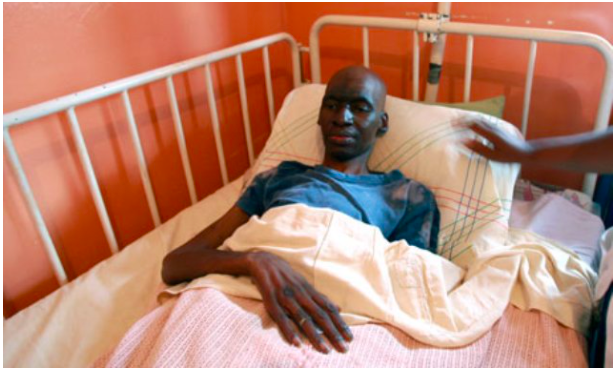Dr Kyeremeh Atuahene, the incumbent Director-General of the Ghana AIDS Commission has asserted that fifty-two (52) Ghanaians got infected with HIV in Ghana every day in 2020.
Dr Atuahene told Kofi Oppong Asamoah on the Class Morning Show on Thursday, 7 October 2021 that “the numbers are quite very high”.
“For example, new infections over the last five years have averaged 21,000, which means in five years’ time, if it stays the same, we are going to have 105,000 being added to the existing number”.
“By ten years’ time, we’ll add 210,000 to the existing number of persons living with HIV and that will be increasing to bring it up to more than half a million people living with HIV – that is if there is not intervention, if there are not a lot of people accessing treatment, then it’s also possible that they will infect others and, so, we will be having a long chain of transmission from these 2021 going into 2030 but by the end of 2030, we want to achieve epidemic control and eliminate AIDS completely and, therefore, the new infections are still very very high”, Dr Atuahene observed.
He said: “What we would want to see is zero new infections every year”, explaining: “If we have zero new infections every year, zero AIDS-related deaths every year, then we would achieve epidemic control”.
HIV, Dr Atuahene noted, “will no longer be a public health concern in the country but unfortunately, as of the end of 2020, 52 people got HIV every day in Ghana. It was 60 in 2016 and it’s come down to 52”.
“Obviously, it’s not only from sex but sex accounts for almost 80 per cent of all infections in the country so we all have to protect ourselves”, he added.
Meanwhile, out of this number, 228,439 representing 66% are females, while 117,681 which constitute 34% are males. 92% of all persons living with HIV are 15 years and above.
For the purpose of education, HIV causes AIDS and interferes with the body’s ability to fight infections.
The virus can be transmitted through contact with infected blood, semen or vaginal fluids. Within a few weeks of HIV infection, flu-like symptoms such as fever, sore throat and fatigue can occur. Then the disease is usually asymptomatic until it progresses to AIDS.
AIDS symptoms include weight loss, fever or night sweats, fatigue and recurrent infections. No cure exists for AIDS, but strict adherence to antiretroviral regimens (ARVs) can dramatically slow the disease’s progress as well as prevent secondary infections and complications.
Source: TheBBCghana.Com


















